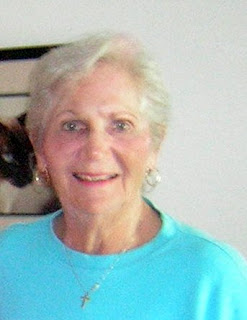Q. You
mentioned the unconscious in one of your articles. What is the unconscious mind
and how can we know about it if it is unconscious? You seemed to suggest that
we can communicate with our unconscious and vice versa.
A. The
unconscious is a division of our psyche or mind. Psychic material not in our
immediate awareness is in our unconscious mind. When it is somewhat easily
accessible it is said to be in the “pre-conscious” mind. We can perceive,
think, feel, remember, decide and act, all unconsciously. Every experience of
our life is stored within our unconscious mind. All we have learned, thought,
felt and experienced is recorded, yet not available consciously. This enables
us to remember how to drive a car without thinking about it.
Throughout
history, the complexity of human nature has been noted along with a variety of
theories to explain or make sense of our nature. Freud was the first to
theorize about a vast unconscious mind with warring factions creating a variety
of problems for us. He discovered that slips of the tongue were often
breakthrough thoughts from the unconscious mind. Similarly, being accident prone
and managing to fail when on the brink of success were noted as due to
unconscious feelings or desires. Our unconscious mind is some times more in
charge of our behavior than our conscious mind is!
Someone
has compared our mental functions and the contents of our minds to a landscape
at night. A search light plays over the landscape. Whatever appears in the
searchlight is conscious, the rest that is hidden in the darkness is
unconscious. Until recently, little was known about how the brain stores our
experiences or about how a memory from the past is evoked to influence our
current life.
In 1951
Dr. Wilder Penfield, a neurosurgeon, made some new and exciting discoveries. During
brain surgery Penfield conducted experiments on patients who were fully
conscious. He used a probe and touched the temporal cortex of the brain. He
found that this forced recollections from the patient’s memory. His most
significant discovery was that not only were past events recorded in detail but
the feelings associated with the events were recorded as well. The event and
the feelings were recorded together and one could not be recalled without the
other.
Does this
matter? Yes, it does. We all carry with us wounds from our past, buried in our
unconscious minds. These wounds affect our daily living. They affect our
marriages, the way we treat our children and they affect our self-esteem.
We can
learn about and heal our unconscious mind by training ourselves to remember our
dreams. Daily meditation and prayer can also open the door to our unconscious
mind and help us face and heal our wounds. The more we become acquainted with
our unconscious minds the more integrated our personalities become.
Our
unconscious minds are a vast resource of wisdom that can be tapped into and
used. Often inventors will dream about a solution to a problem they had
struggled with unsuccessfully during the day. Our unconscious minds can be used
to help solve daily problems as we face them.
Similarly,
athletes often visualize a perfect performance while in an altered state of
consciousness. We can reprogram our minds using positive images as we meditate
or pray. I hope these ideas will help you learn to use the power of your
unconscious mind and also the power of prayer.
“I will bless the Lord who has counseled
me; indeed, my mind instructs me in the night. I have set the Lord continually
before me; because he is at my right hand I will not be shaken.” Psalm 16:7-8
Blessings,
Dottie



